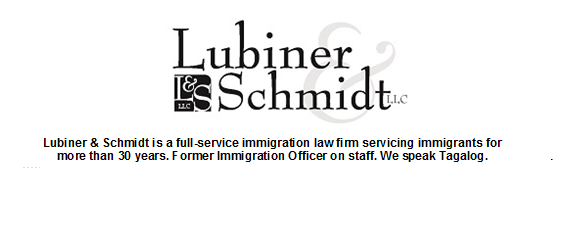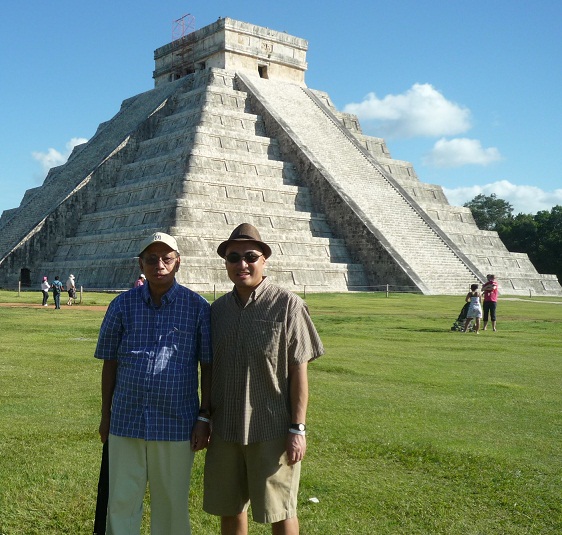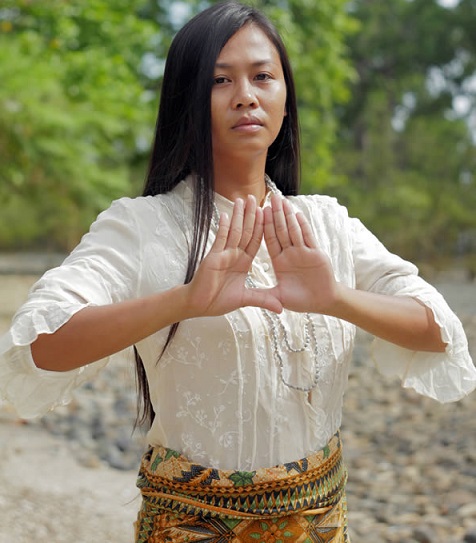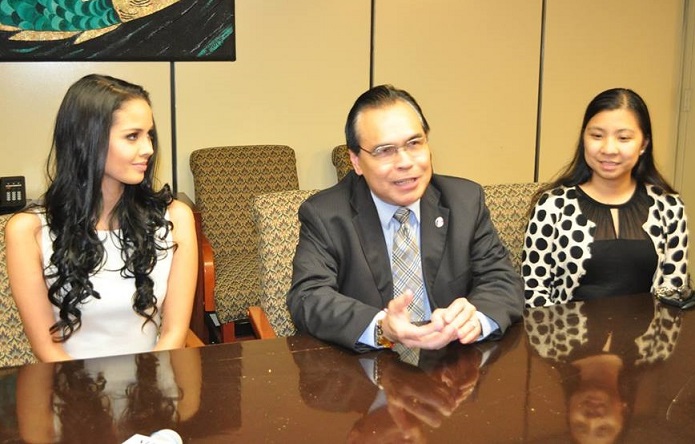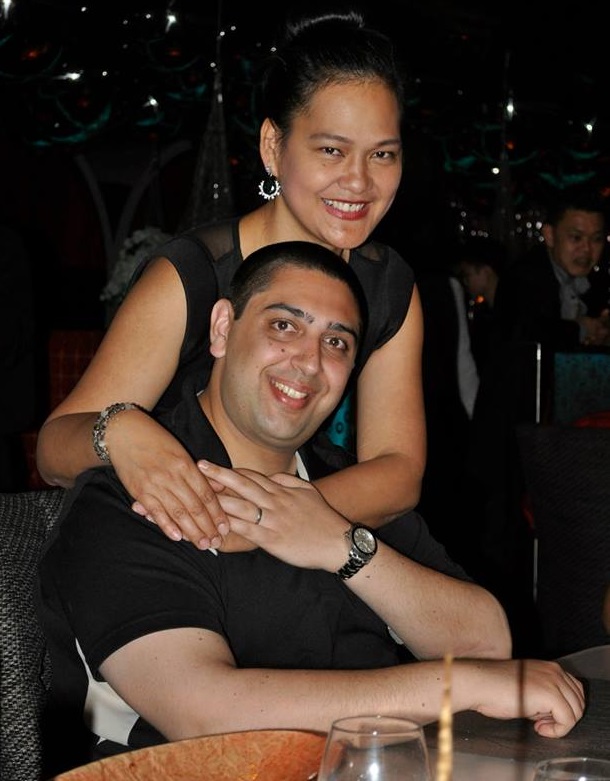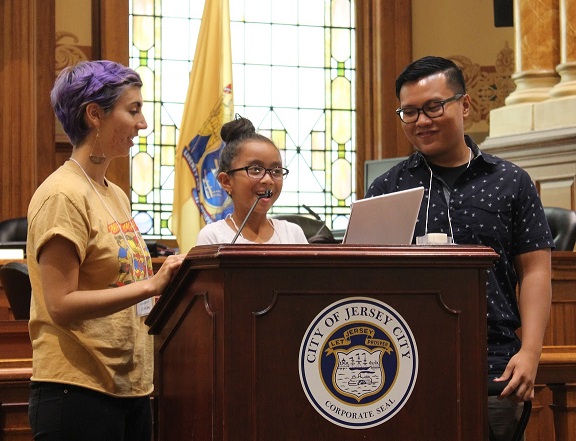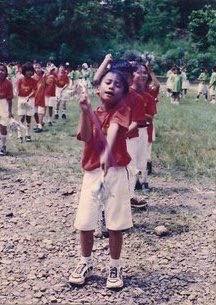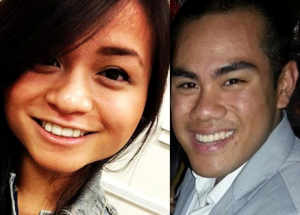Has ‘crab mentality’ crept into the ranks of second generation FilAms? (Part 3)

An invitation to a FIND Conference hosted by District 5’s University of Virginia. Courtesy of RJ Lualhati
During a meeting at NYU, I met with Ronald Rapatalo, the 1995-1996 president of the NYU’s International Filipino Association, where I was president. IFA started in 1985 originally as an intramural campus basketball team and evolved into a full-fledged organization with educational, cultural and social programming. Rapatalo told me of his involvement alongside the university’s Asian communities campaigning for what would become NYU’s Asian Pacific American Institute—the very department which provided students like me access to classes on Jose Rizal and Tagalog.
It thrilled me to hear about the ground-level efforts these students took on, and made me wonder why I never heard of such IFA history before. It was both enlightening and encouraging to know there were action-oriented roots in the organization. Most of the stories passed down otherwise were tales of drunken nights, who’s-dated-who, dramatic fallouts, and other less than inspiring college happenings.
“They don’t distribute FIND’s mission to e-boards of schools to make sure that they know this,” Steven Raga said after I read aloud FIND’s mission points. Surprisingly, it seemed as if he was hearing it for the first time although he had served as a National Director.
“They don’t distribute this mission to e-boards of schools, to make sure that they know this. No one understands FIND’s mission,” he said. “Since they don’t know what FIND National is supposed to do, no one cares. That’s why there’s a disconnect between FIND National and the student level—why invest on projects when that’s not your audience?”
While the mission and actions of FIND are public information online and printed on pamphlets, there’s still this culture of focusing on your individual club over the umbrella organization. This is how I and my IFA executive board once felt, bemoaning District 3-wide meetings that only happened once a month. It’s a feeling likely attributed to that tried and true trope called ‘crab mentality.’
“There’s not a lot of collaboration within the organization as is,” former FIND District 5 chair Chris Unera added. “The way they brand conferences, for example, roll call, and pitting district against district kind of counteracts efforts toward collaboration.”
While he admitted to taking part in those well-intentioned cheers, he explained, “That kind of makes it feel like D3 is better than D5 or D5 is better than D6. Little nuances like that play a part to all this.”
Vanessa Palma, current President of Rutgers New Brunswick’s FIND District 3 school Rutgers Association of Philippine Students (RAPS ), shared similar sentiments, explaining an informal partnership she has with Carlo Limbog, President of Stony Brook’s Philippine United Student Organization (PUSO), another District 3 club. Because the two share ideas and experiences over leadership, they face criticism from their peers.
“People from Rutgers wondered why we’re letting them copy us and why are we copying Stony Brook,” she said. “But, if our stuff works for them and their stuff works for us then great, because then both of our organizations are (benefiting and) succeeding. Why wouldn’t I want to help out another organization? Why do we have to bring other schools or organizations down?”
As opposed to collaborators, we’ve become competitors. Recently, during District 3’s Mr. Philippines pageant hosted by NYU IFA, a Twitter-driven contest led to a tweet from one student saying, “How are you proud to go to a community college?” What started as an attempt to engage and unify the schools ignited a wave of backlash.
It’s a prime example of the “too good for you” attitude carried in stride by students that, I realized later, was embarrassing and part of the problem. How is it that crab mentality has made its way into 1.5 and second generation FilAms? It may stem from a reverence for tradition and being handed down events to repeat and rubrics to follow.
“FIND has cultivated a group of people that carry on the same qualities FIND emphasizes: tradition and thinking inside the box,” Unera said. “It’s like ‘Hey, let’s keep doing what someone else did before us.’ Then, you have a lot of people that were brilliant in FIND but have nothing to do with the community at this point because of frustrations or not being shown what else is out there after college.”
Gather a group of students, list several Filipino organizations — both national and local — and they’ll recognize two on average, if any at all. I’ve seen this while working with students in leadership positions during last summer’s Project LEAD initiative by LEGACY, an organization focusing on student leadership development to fill that gap from student-level to community-level. I know this from experience too, after discovering the breadth of Filipino and FilAm groups and causes only during my senior year. By this time, I had found community mentors. For some students, even those with potential, college is where their work ends because they don’t know where to go next.
“After college, I didn’t think I had an outlet to express my leadership skills or my want to help my community,” said Rachelle Ocampo of UniPro. At graduation she hadn’t heard of organizations like Anakbayan, NaFFAA and many others.
“I want to say there’s a renaissance happening, however,” she said. “Student orgs have reached this enlightenment of curiosity and wanting to learn more. There’s still a lot of work to be done about letting people know about organizations that can be used as a platform for education and awareness.”
One promising solution to this state of stagnancy, or “stabilization” as National Chair Marc Densing would call it, was suggested by Raga: Gather all National Directors from the past decade to a facilitated meeting, at once, to relay experiences and issues district by district. Leaders, new and old, could compare roadblocks that happened in 2014 and in 2004 and how they could change the course.
“Maybe, then, they could stop dealing with the same problem the same way if a cycle has continued from years ago,” Raga said. “They [the students] need to hear that directly from people who were in their position. They’re the only people who will understand what you’re going through.”
Efforts of current students are not lost. The passion and eagerness of those leaders I spoke to are moving and full of intent. There only needs to be a clear direction. The FIND of today appears to be veering toward the right track and looking beyond graduation. In the most recent FIND Dialogue in November, for example, a packet shared contact information of FIND alumni willing to be mentors for different industries, closing that generation gap that bred part of the leadership vacuum.
On why it’s taken so long to spark actionable focus, Christine Sicwaten, a content Chair for FIND’s 2014 Dialogue, gave this insight, “It’s our generation. Everyone is about instant gratification: they want it then, they want it now.”
May this is the time to tap that urgency already burgeoning in many students to manifest. We want to see college organizations to be unafraid to take steps beyond comfort, to be critical, to foster stronger traditions of leadership, and of course, to make noise. We know they at least have that much in them.
Kristina Rodulfo is a recent graduate of New York University and journalist whose work has appeared in Rappler and ELLE magazine. She was former president at NYU’s International Filipino Association and is also a founding Program Director at LEGACY, where she develops mentorship programs for Asian American students on building leadership skills.
Part 2: Leadership burnout: Why youth lose interest in community organizing after graduation
The FilAm’s Investigative Reporting Project is made possible through the generous support of our readers and contributors including the following:
Consuelo Almonte
Melissa Alviar
Amauteurish.com
Bessie Badilla
Sheila Coronel
Joyce and Arman David
Menchu de Luna Sanchez
Kathleen Dijamco
Jen Furer
Marietta Geraldino
Dennis Josue
Lito Katigbak
Rich Kiamco
Monica Lunot-Kuker
Michael Nierva
Lisa Nohs
Cecilia Ochoa
Rene & Veana Pastor
John Rudolph
Roberto Villanueva
2 anonymous donors![]()
